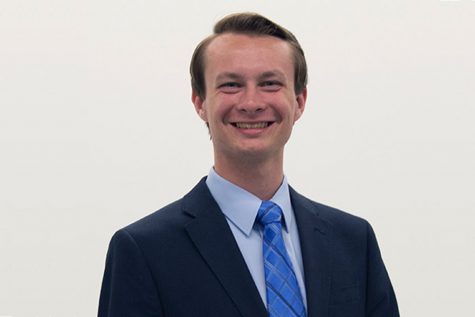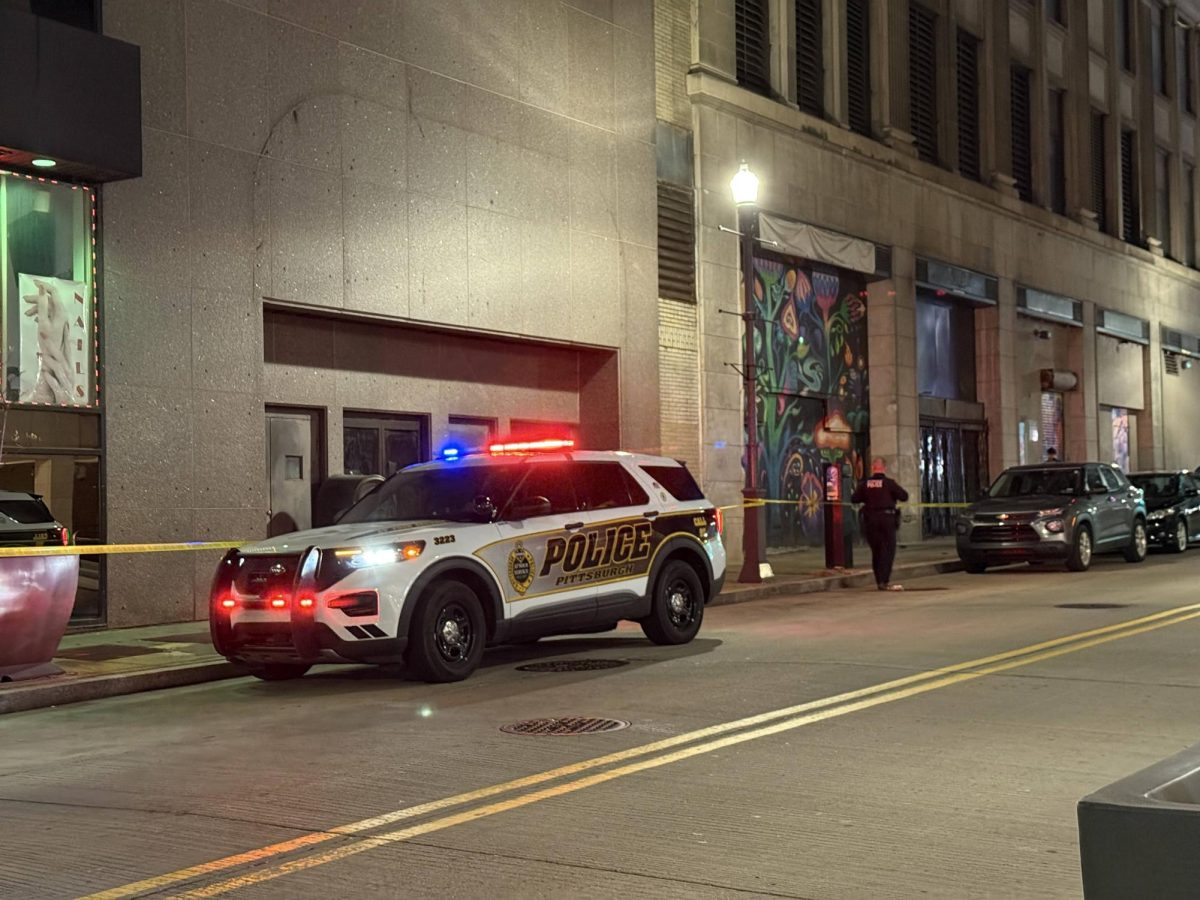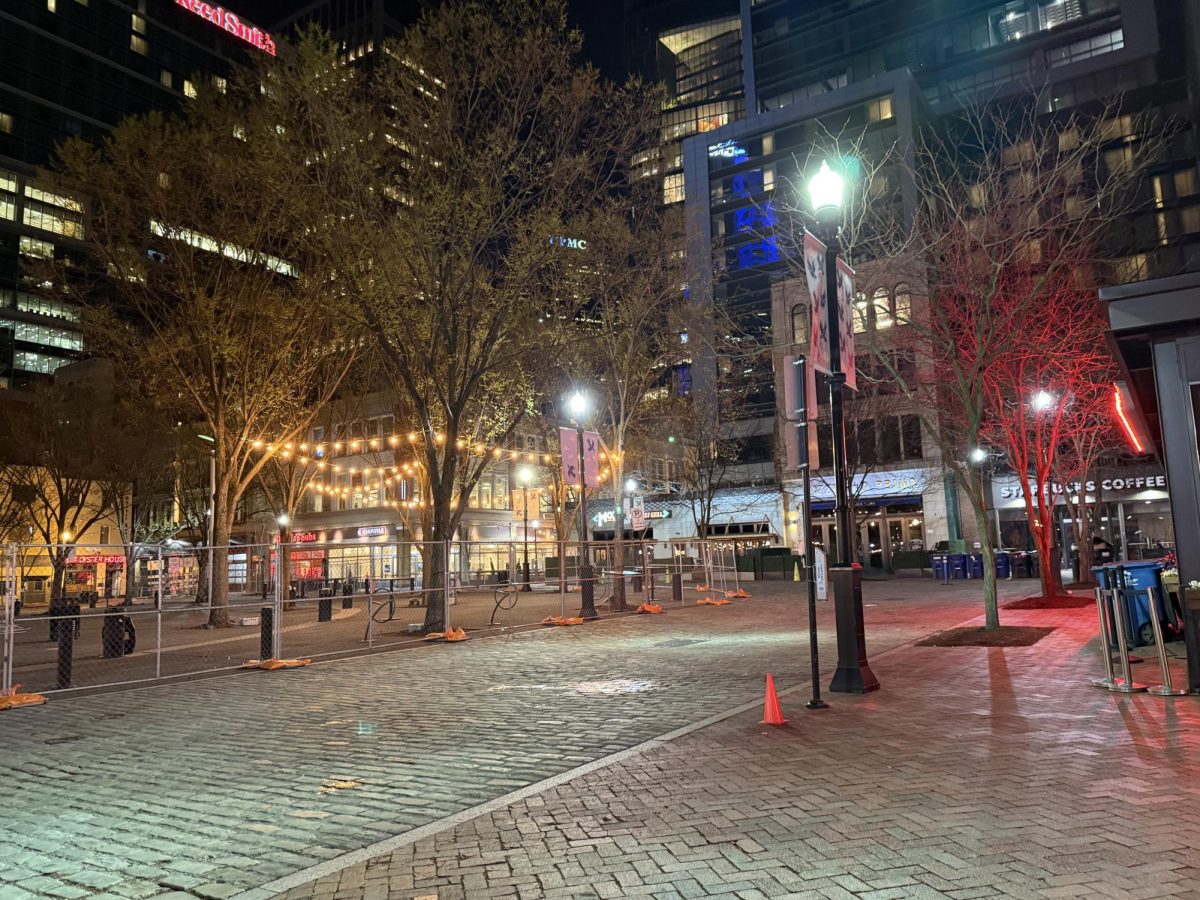
Rosie the Riveter is an iconic image, one that taken on a larger-than-life feminist quality more symbolic than anything else.
But her origins are grounded in fact, representing real American women who entered the workforce in World War II.
Three of those real women, including two World War II veterans, spoke to students Monday following a presentation called “The Wonder Women of World War II.”
Todd DePastino is the founder and executive director of the Veterans Breakfast Club in Pittsburgh. His presentation, co-hosted by the Honors Program and the History Department, took students through the years leading up to and during World War II for women in America.
Honors Program Director Helen Fallon worked with Assistant Professor of History Jehnie Reis to coordinate the event. Fallon said the opportunity to host the event during women’s history month seemed like a natural fit.
“What I like to do always is try to plan for Point Park University some academic oriented events with speakers,” Fallon said. “I love working with Doctor Reis and with the history department in particular and this opportunity to hear Todd DePastitno was too good to pass up.”
DePastino talked about the significance of Wonder Woman, who was debuted by All Star Comics just before the attacks on Pearl Harbor. She was the first female superhero and used the Lasso of Truth that forced the wearer to speak only the truth.
The nonviolent female superhero was a new approach for comic books at a time where women were expected to work at home.
“Clever women can conquer the strongest men,” one comic read.
DePastino said strong women like Wonder Woman were needed to support America’s labor force.
“What we don’t remember is how much resistance there was,” he said.
A Gallup poll in 1936 reported that 82 percent of those surveyed believed that women with employed husbands should not work beyond their own homes.
He showed examples of government propaganda used in the attempt to change American’s minds. When women began working, DePastino said scientific studies showed women were patient, cooperative and careful with their work.
Julia Parsons and Ila Cole both joined the Women Accepted for Volunteer Emergency Service (WAVES) program created to recruit additional military personnel for the Navy.
The two sat with Kathie Swazuk, an Army nurse that served during Vietnam, in a panel discussion after DePastino’s presentation in the JVH Auditorium.
“I wanted to do what the men were doing, but what they were doing was not that exciting,” Parsons said.
Parsons played a critical role during World War II. The Carnegie Tech graduate was part of an all-women’s German code-breaking team assigned the task of working with one of the first computers to decipher German U-boat codes sent via the ENIGMA machine.
Parsons kept her role a secret until the late 1990s when she and her family visited a museum in Washington, D.C. when she found out the information about the ENIGMA machine had been declassified.
There was no parade, no celebration and no praise for her top-secret mission when she returned to the states.
“When the war was over, that was it,” Parsons said. “Back to the kitchen. There was no carryover at all. No one was interested. It was sad.”
She said the transition back to civilian life was difficult because she loved her work.
Cole joined the WAVES against her parents’ wishes. She joined after Pearl Harbor for the increased pay and the sharp uniforms.
“I always liked sailors,” she said.
Her military service continued after her time in World War II. She then worked as a secretary for a federal office in San Francisco and later worked as a crewmember on transport planes between California and Honolulu.
“Everything was just perfect,” Cole said about her time with the Navy. “I had no complaints.”
Swazuk said the Vietnam veterans remain the most troubled because of how they were treated when they returned home from the unpopular war, but she said we are now treating veterans with the respect they deserve.
“We’ve finally learned to treat them with patriotism, and welcoming them home, and taking care of them when they get home,” Swazuk said.
Fallon said she was happy with the event and invited DePastino back to host a veteran’s breakfast in November.
“We’re very pleased with the program today,” Fallon said. “It went as planed. It was interesting, engaging and enlightening.”









